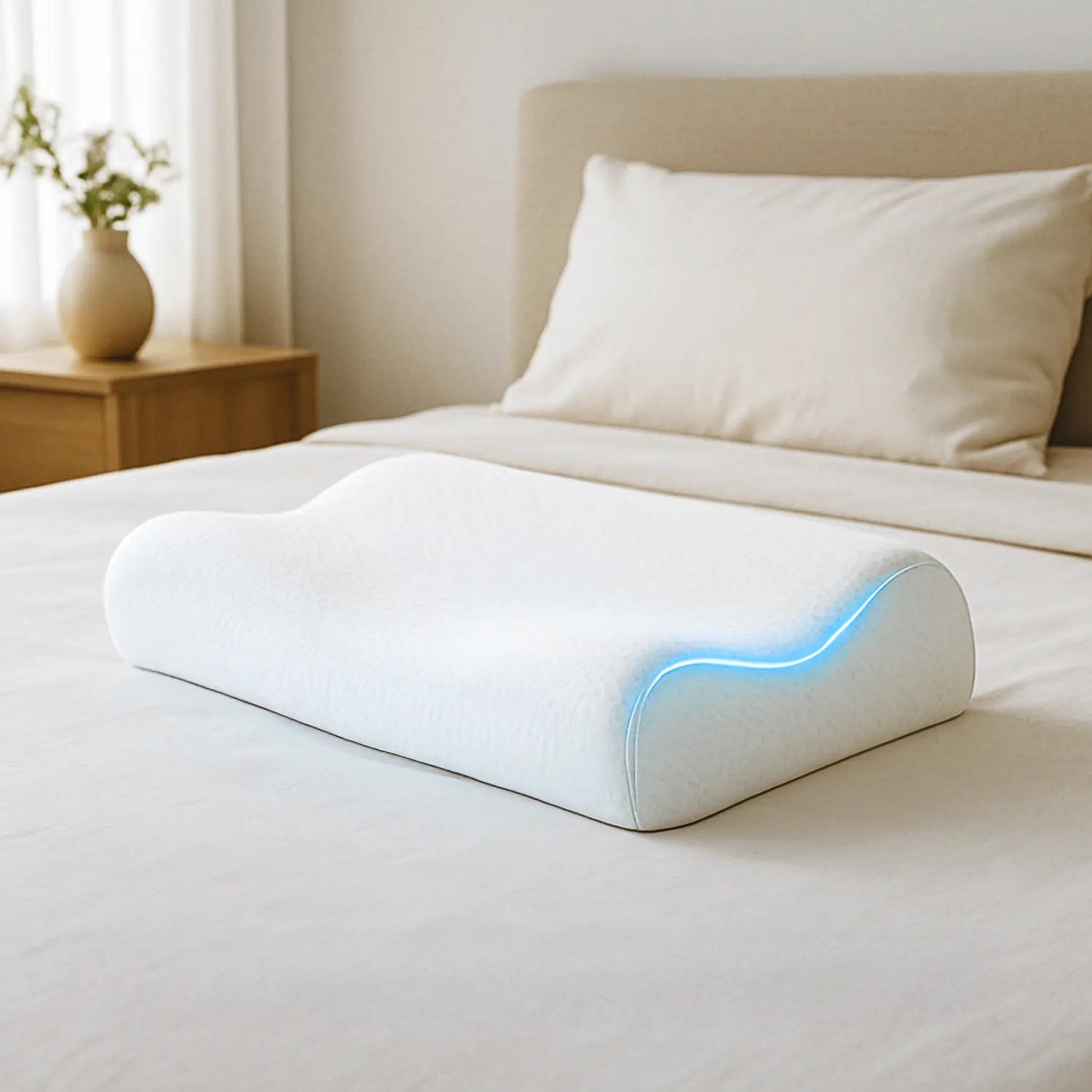
How to Avoid Sleep While Studying?
Recommended Products
It’s no secret that studying can be tough. And if you’re like most students, you probably don’t have much time to relax between bouts of studying. That’s where sleep comes in. Too little sleep can have a negative impact on your mental and physical health, which means it’s important to make sure you get the sleep you need. In this article, we will explore some strategies for avoiding sleep while studying so that you can focus and succeed in your classes. We hope you find the information helpful!
How Important is Sleep for Students?

Students need adequate sleep in order to learn effectively. The National Sleep Foundation reports that students who get enough sleep have better grades and are more focused and energetic. In a recent study, it was found that students who got less than 6 hours of sleep a night had lower IQs than those who got 8 or more hours of sleep.
It is important for students to get a good night’s sleep not only for their own well-being, but also for their classmates. When students are tired, they aren’t as attentive in class and make more mistakes. Missed classes and poor grades can lead to lowered self-esteem and decreased academic opportunities in the future.
There are many ways to help students get enough sleep. The most important thing is to set a good example for them and make sure they get enough exercise too!
Benefits of Sleep

There are many benefits to getting a good night’s sleep, and few excuses for not taking care of your sleep schedule.
Here are eight of the most important:
- Improved focus and concentration.
- Greater creativity and productivity.
- Reduced anxiety and stress levels.
- Better decision-making abilities.
- Increased emotional stability.
- More energy throughout the day.
- Increased alertness in the morning hours, which can help you stay productive all day long!
- Greater overall health and well-being due to better immune system function and increased stress relief
Why Do You Want to Avoid Sleep While Studying?
There are countless benefits to studying while awake, including improved memory and concentration. However, there is one major disadvantage to going without sleep – you will likely be less productive.
Here are three reasons why you should avoid sleep while studying:
You Will Be Less Productive
When you are tired, your brain isn’t as efficient at processing information. This can lead to slower recall of what you studied and increased mistakes when completing your work. In addition, your focus may be scattered, making it difficult to stay on task.
You May Become Drowsy
If you study after a long night of sleep, you are more likely to become drowsy. Drowsiness during the school day can have negative consequences such as getting in trouble or not being able to complete your work due to lack of concentration.
You May Feel Irritable and Confused
When you don’t get enough rest, your body starts releasing stress hormones such as cortisol. Cortisol has a negative impact on both your mental and physical performance. Additionally, when you are tired, it is harder for your brain to make connections between different pieces of information. This can lead to confusion and frustration during classwork sessions.
How to Avoid Sleep While Studying?

There is no one definitive answer to this question. Factors that can influence when is the best time to study include your natural circadian rhythm, the time of day, how much sleep you are getting, and your workload. Some people are better suited to study in the morning while others may be better off studying in the evening. The best time for you to study will vary depending on your individual circumstances. However, following some basic guidelines can help maximize your learning potential:
Avoid studying in the late hours of the night. Your body's natural rhythm is shifted towards sleep after midnight and it is harder to focus and learn effectively during these hours.
Try to get at least 7 hours of sleep each night. This will help you stay alert and focused throughout the day and avoid making mistakes while studying.Don't work yourself into a frenzy before exams or finals week. Excessive stress can actually impair your ability to learn new information as well as make it more difficult to remember what you learned during the course of the day. take things easy during these weeks if possible so that you can fully concentrate on learning material.
- Use an alarm clock that goes off at a consistent time each day to help you stay awake.
- Make sure you have enough light in the room to stay alert.
- Try not to study in the same place for too long or you will fall asleep.
- Listen to music or podcasts while studying to keep yourself alert and motivated.
- Take breaks every hour or so to stretch, drink water, and get some fresh air.
- Get up and move around every 30 minutes or so to keep your brain active and awake.
- Write down what you are studying so you can review it later without having to memorize it completely.
- Use flashcards or an app that helps you learn information quicker and more efficiently without sleep deprivation robbing your memory of important facts.
- Take practice exams before sitting for the real test so that you are fully prepared and don't feel any pressure during the actual test itself..
- Practice problem sets outside of class so that when the timed tests come around, you will be able to solve them quickly and with little stress.
How Long Does It Take to Catch Up on A Night’s Sleep After Not Getting Enough?
If you’ve been sleep deprived, it can take a while to catch up on your usual amount of sleep.
Here are some tips on how to avoid sleep deprivation and get the sleep calculator you need:
- Make sure you have enough time for sleep. If you’re trying to study while also managing a full schedule, make sure you give yourself enough time to relax and get the sleep that you need. If possible, try to set aside an hour or two each night for relaxation and sleep.
- Establish a bed-time routine. Knowing what will help you fall asleep can be tricky when studying at night. However, establishing a regular bed-time routine can help reduce stress levels and make falling asleep easier. Try winding down for 90 minutes before bed by reading or watching something relaxing, practicing your breathing techniques, or taking a hot bath.
- Avoid caffeine and alcohol in the evening. While these substances may help us feel alert during the day, they’re not good for our evenings either. Caffeine increases blood pressure, which can make it more difficult to fall asleep; and alcohol consumption decreases quality of sleep and temporarily impairs working memory.
- Exercise regularly throughout the day. Exercise has been shown to improve both our moods and our ability to fall asleep. A 30-minute workout before bed has also been shown to be effective in catching more Zs. However, make sure that the exercise you do in the evening isn’t too intense or strenuous.
- Try a sleep supplement. If you’ve tried all of the above and still struggle to get enough sleep, consider taking a sleep supplement. Sleep supplements are available over-the-counter and can help improve your ability to fall asleep and stay asleep. Talk to your doctor before taking a sleep supplement, though, as some may have side effects.
How to Tell If You’re Struggling with Sleep and How to Fix It?

If you're struggling with sleep, there are a few things you can do to fix the problem. First, make sure you're getting enough restful hours of sleep each night. Second, try avoiding stimulants and electronics before bed. Third, consider using a Relaxation Technique or meditation to help you relax and fall asleep. Lastly, talk to your doctor or therapist about any sleep problems you may be experiencing.
If you're struggling to get enough sleep, a Sleepsia pillow may be your solution.
Here are some tips on how to get the most out of your pillow:
- Make sure it's comfortable.
When you buy a pillow, make sure it's comfortable to sleep on. You want to avoid sleeping on an overly firm or too soft pillow, as these can cause discomfort. Instead, find a medium-soft pillow that will support your head and neck well.
- Place it in the right place.
Before bed, position your pillow so that it is aligned with your spine and supports your head and neck well. This way, you'll ensure that you're getting the best possible sleep while studying. Additionally, make sure the pillow is not in direct sunlight or near heat sources as this can cause it to lose its strength and durability over time.
- Cover it up if necessary.
If you find yourself waking up frequently during the night because of uncomfortable positioning or temperature fluctuations, cover your pillow with a quilt or sheet to help sleep better!
Conclusion
Studying can be very demanding and it's easy to get caught up in your studies, which can lead to poor sleep habits. Make sure you don't fall victim to the following three common studying mistakes that will sabotage your rest: staying up too late, working on the computer in bed, and drinking caffeine early in the morning. If you find yourself struggling to get enough zzzs during the night, try out one or more of these tips for improving your sleep quality.
















